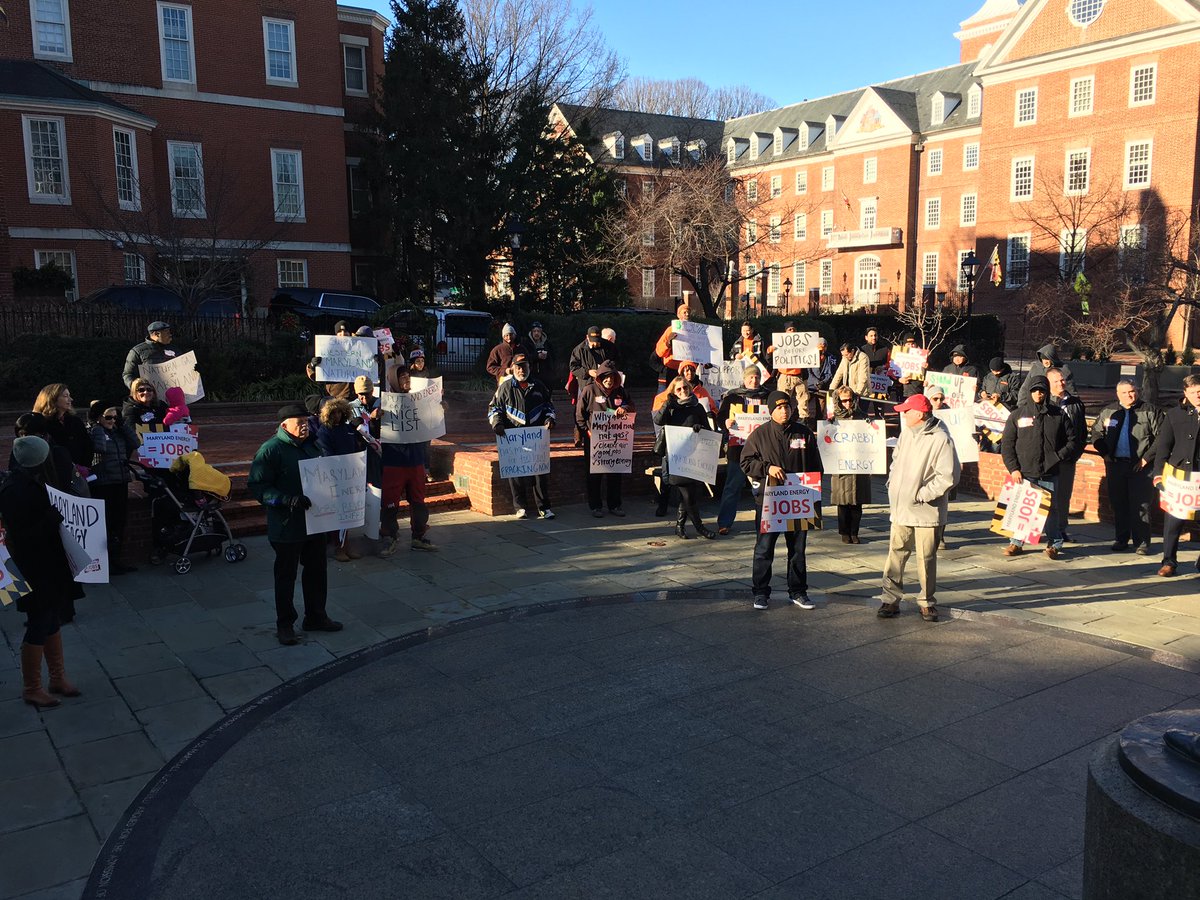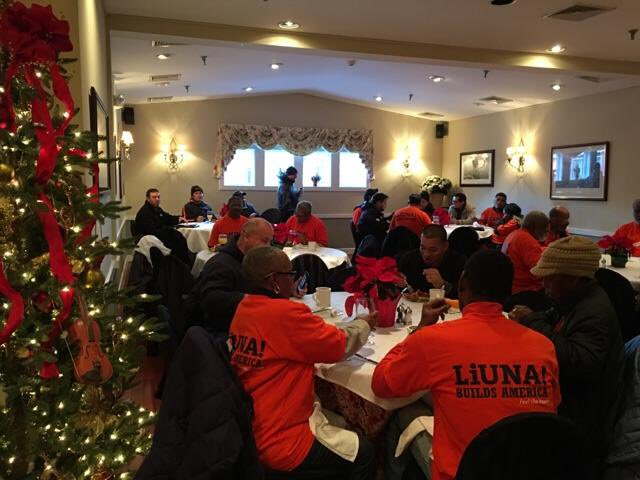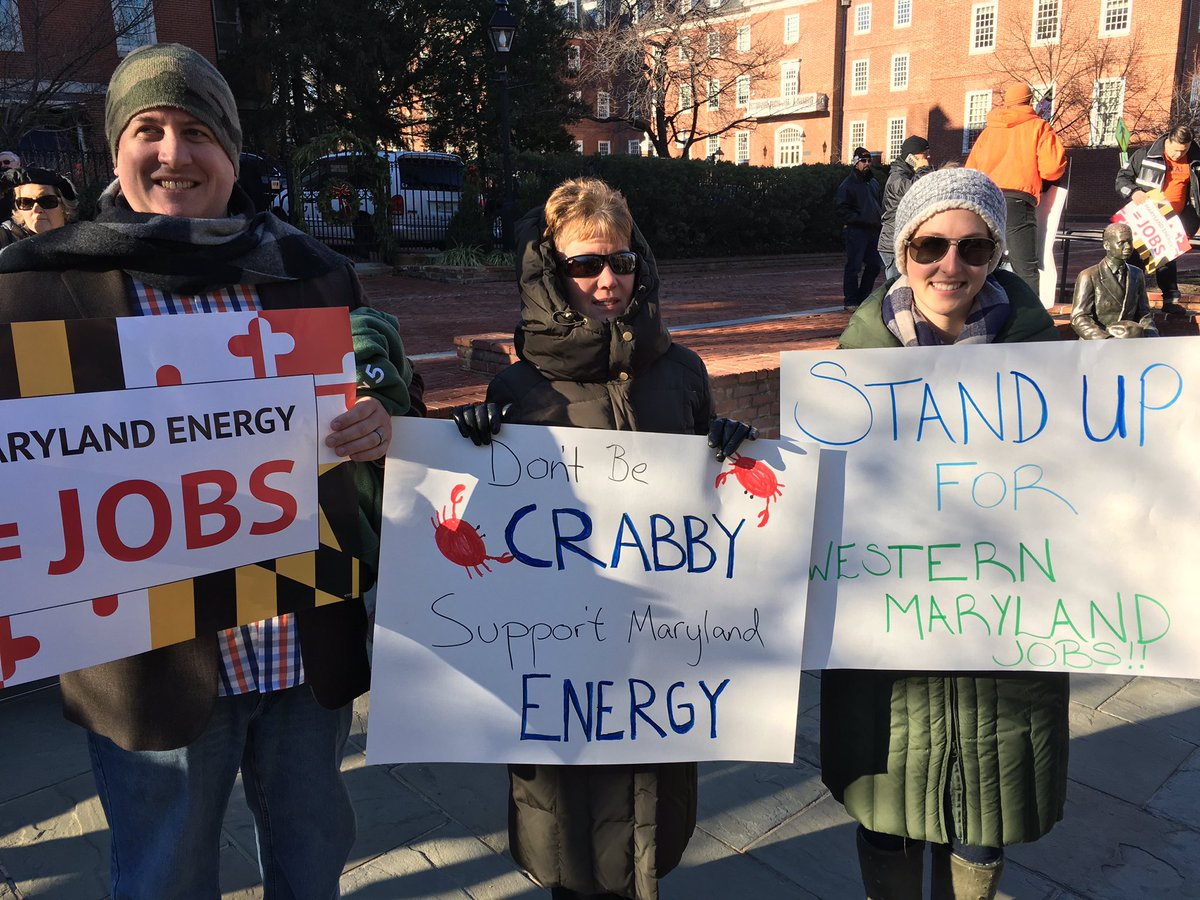Two weeks ago, in the waning days before the Christmas holiday, perhaps 40 to 50 brave souls dealt with the cold weather to state their case for job creation in western Maryland and beyond. I don’t think the Maryland Energy Citizens and Energy Nation Rally drew a lot of interest outside the energy field beforehand (except perhaps from me) and in doing a news search for the event I found exactly zero coverage. (The photos I’ll use here were Tweeted by Energy Citizens.)

It was a modest gathering to be sure, but those who showed were interested in regulations that would allow for job creation – directly in Allegany and Garrett counties, and eventually spilling over into other parts of the state as the infrastructure needed to move the natural gas to market is placed. And there was one group who understood this well.

The folks in the orange shirts were members of the Laborers Union, which would stand to benefit from the infrastructure being built. In the universe of the left wing, oftentimes Big Labor and environmentalists stand on opposite sides because the union side understands better the economics of utilizing our energy resources to provide the clean and reliable power we need to keep the economic engine going, while environmentalists seem to think that the wind will always blow and the sun shines every day so we can rely on those sources. With their entrenched opposition to energy progress through additional exploration and infrastructure construction, Radical Green would shortly have us in the same boat as the New England states when it comes to energy costs, especially at this time of year.
Yet in the days since I’ve learned of a study from the University of Chicago that has attempted to quantify benefits and costs of fracking, with the study being summarized thus:
The benefits include a six percent increase in average income, driven by rises in wages and royalty payments, a 10 percent increase in employment, and a six percent increase in housing prices. On the costs side, fracking reduces the typical household’s quality of life by about $1,000 to $1,600 annually – excluding the increase in household income.
As a point of reference, the average household income across the two counties is about $42,000 so a 6% increase would be a net gain in household income equating to approximately $2,500. And considering energy jobs tend to pay more than average, the 10% increase in employment would be a boost to the median so the benefits could work out to $3,000 or more while the somewhat dubious “quality of life” costs would not be so affected.
I noted above that there was no coverage of the rally by the local media, but that very day the Baltimore Sun chose to run a laughable screed by Senator Cardin about the prospect of the incoming Trump administration abandoning the Paris Climate Agreement; a diatribe that included this howler:
In 2015, investment in renewable energy was nearly $350 billion worldwide, more than fossil fuel energy. Even though gas and oil have hit record low prices, current and projected prices for renewables are low too, making clean energy solutions remarkably competitive.
The huge piece of information unspoken here is how much of that renewable energy “investment” was picked from the pocket of unsuspecting taxpayers, nor does it account for the amount of the market carved out for renewables artificially by state mandate. Nor should it be our intention to follow Europe and take the blue pill, thinking mankind has one iota of effect on the global climate in the long run.

Sadly, it may be almost as much of a folly to believe that a small group of common-sense protestors will have an effect on a group of legislators who mistakenly believe that restrictive regulations will encourage job creation or that a fracking ban will benefit the state. But I encourage them to keep trying anyway because people who can see the long-range picture will realize you are on the right side of this.

